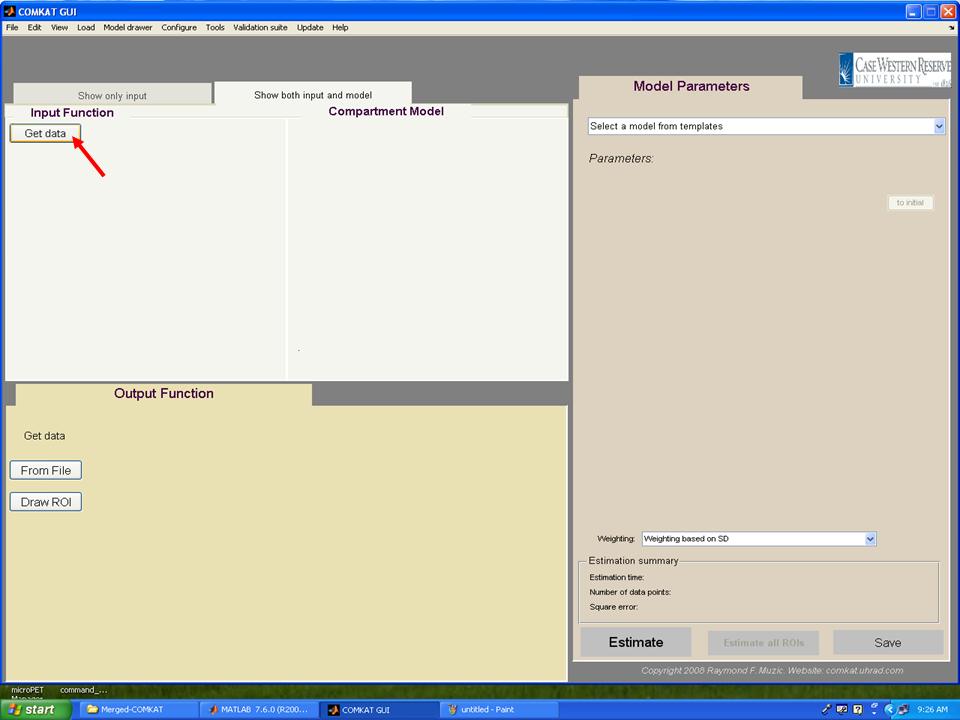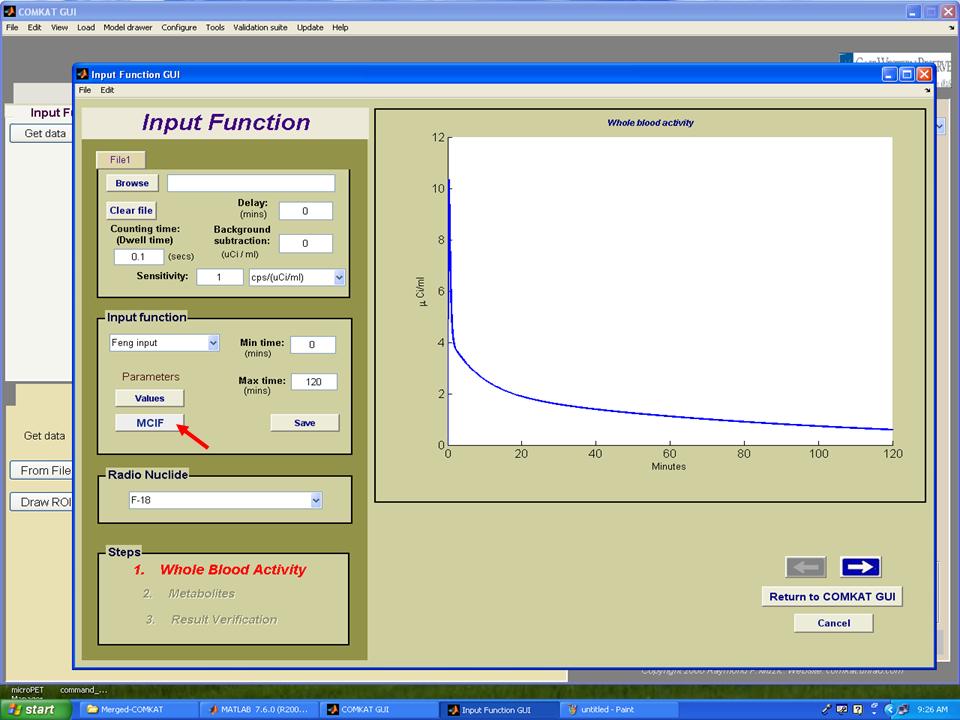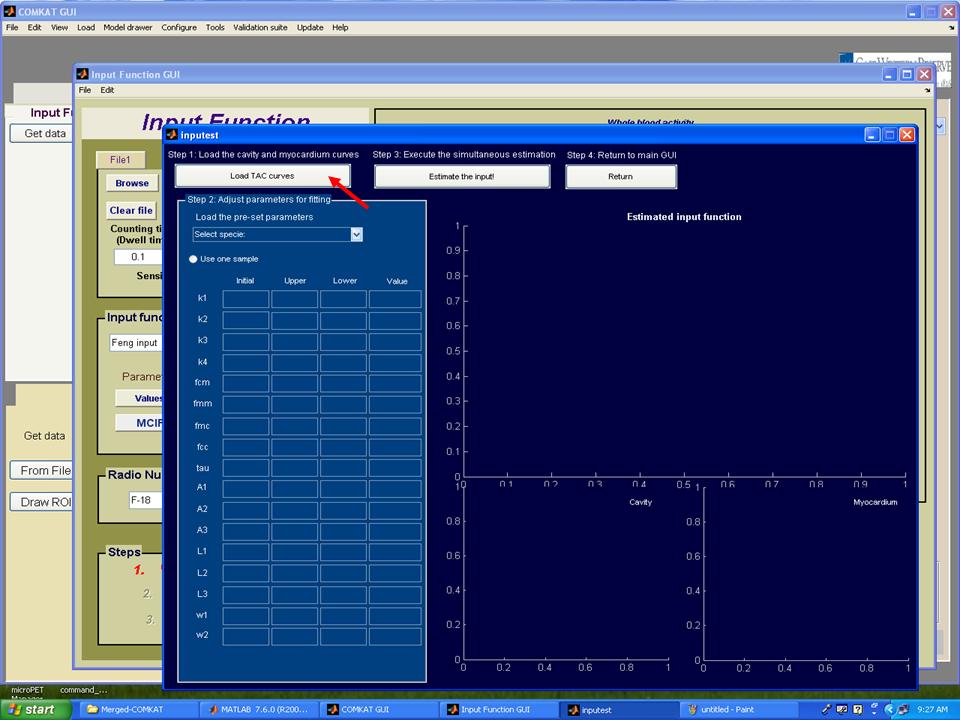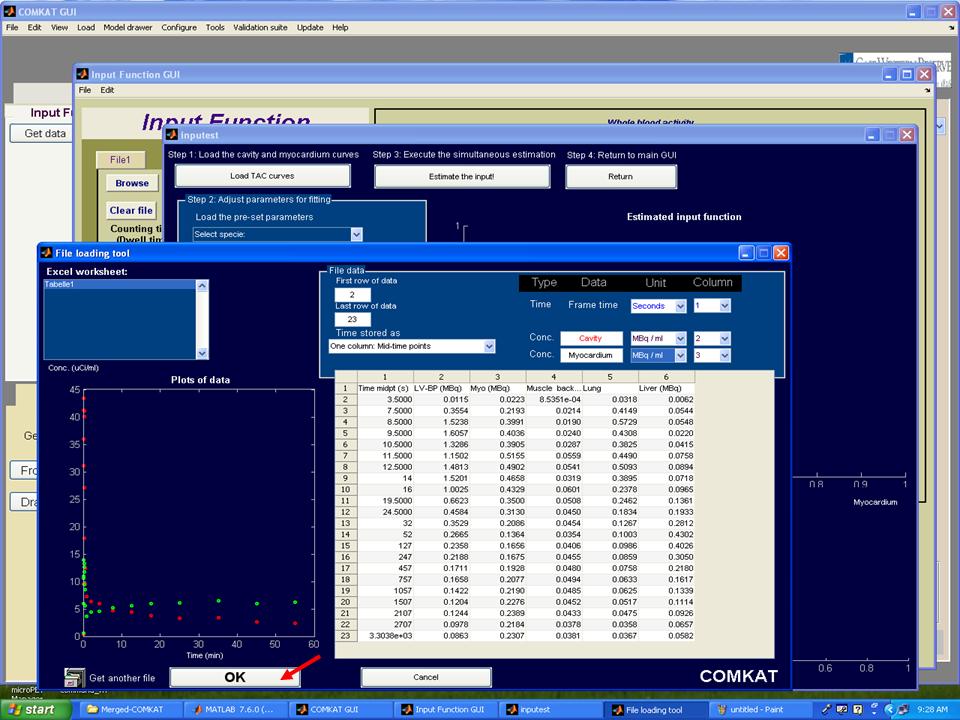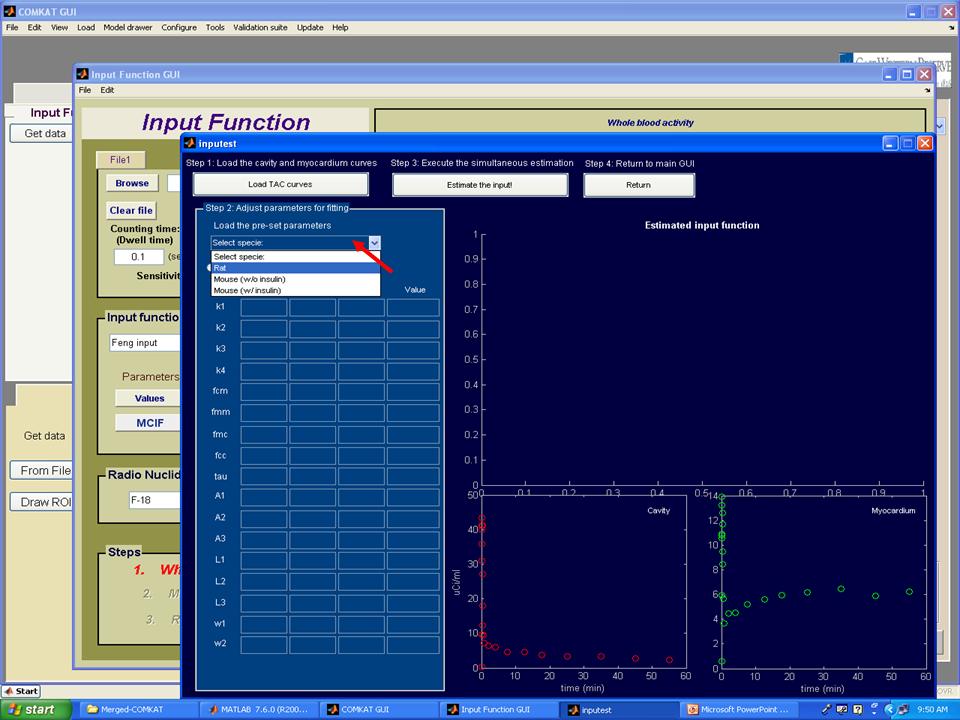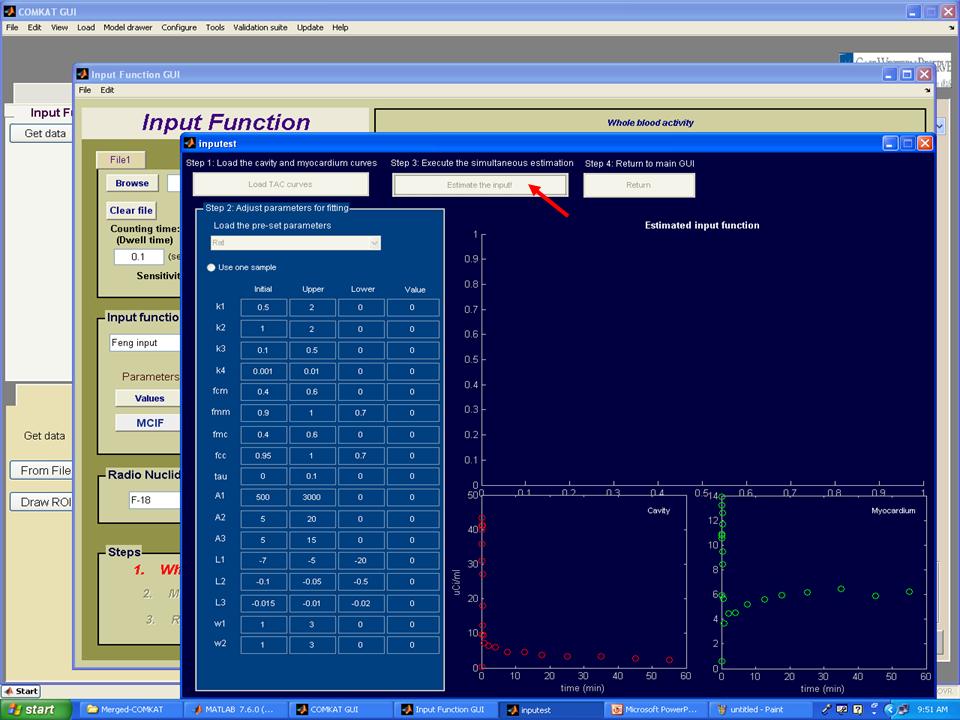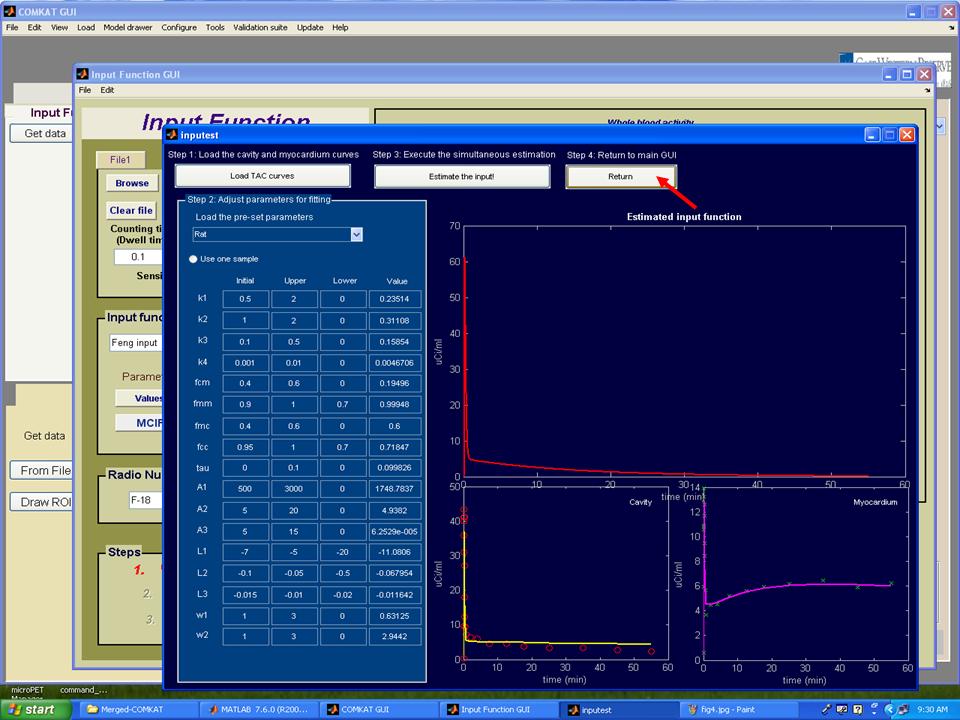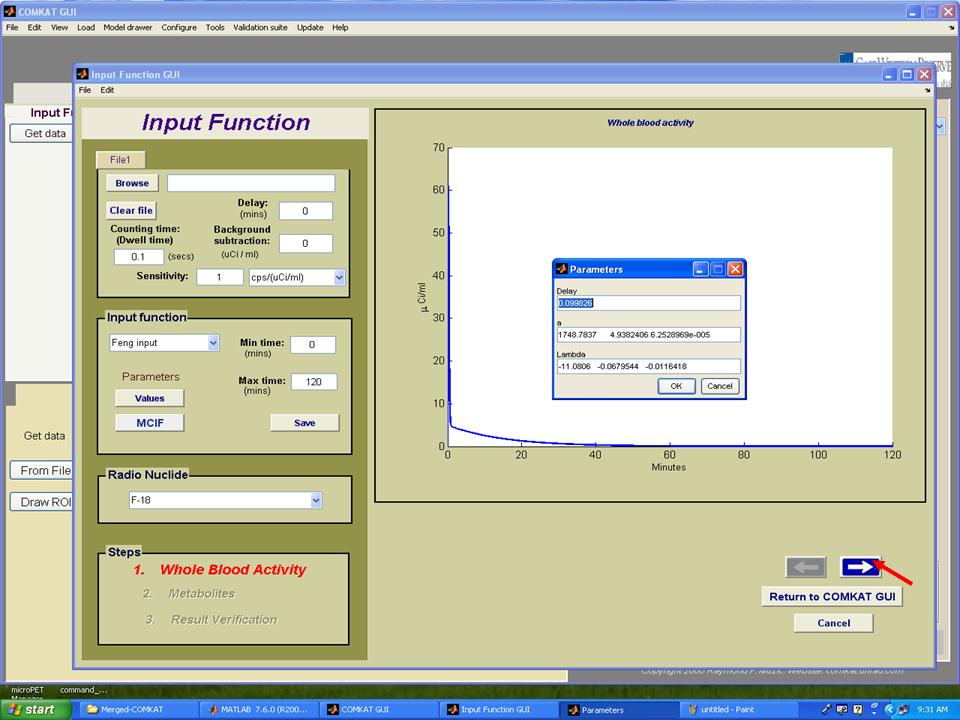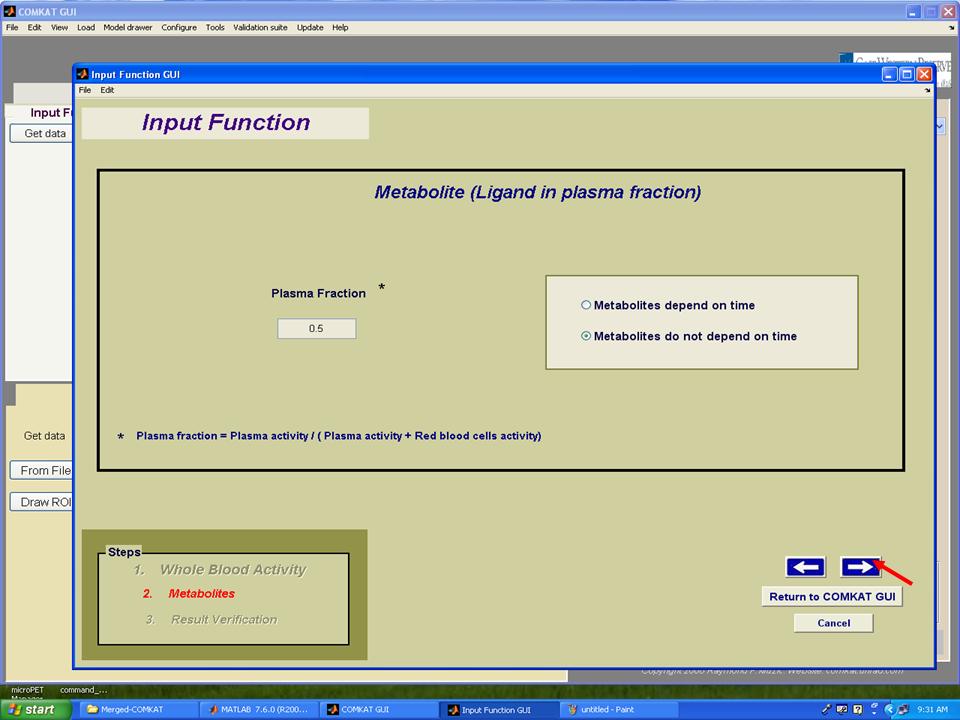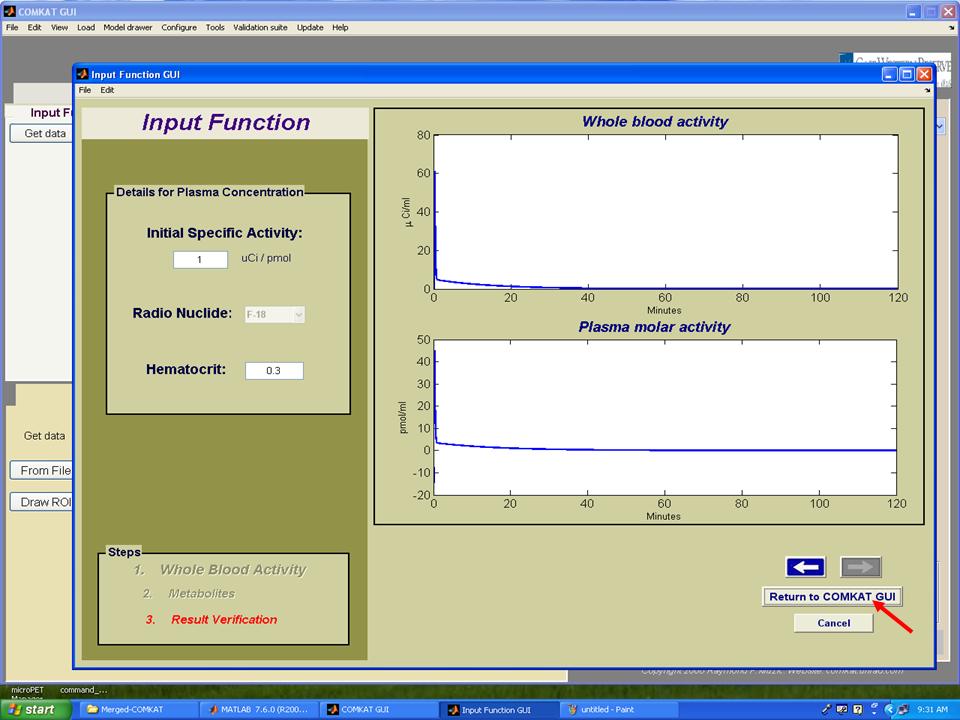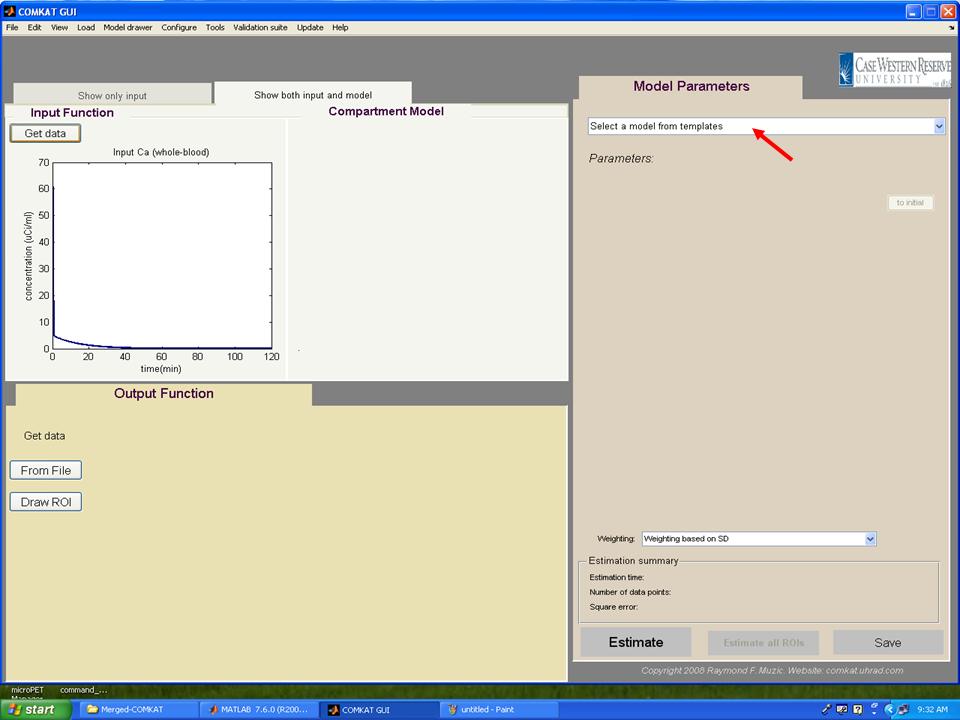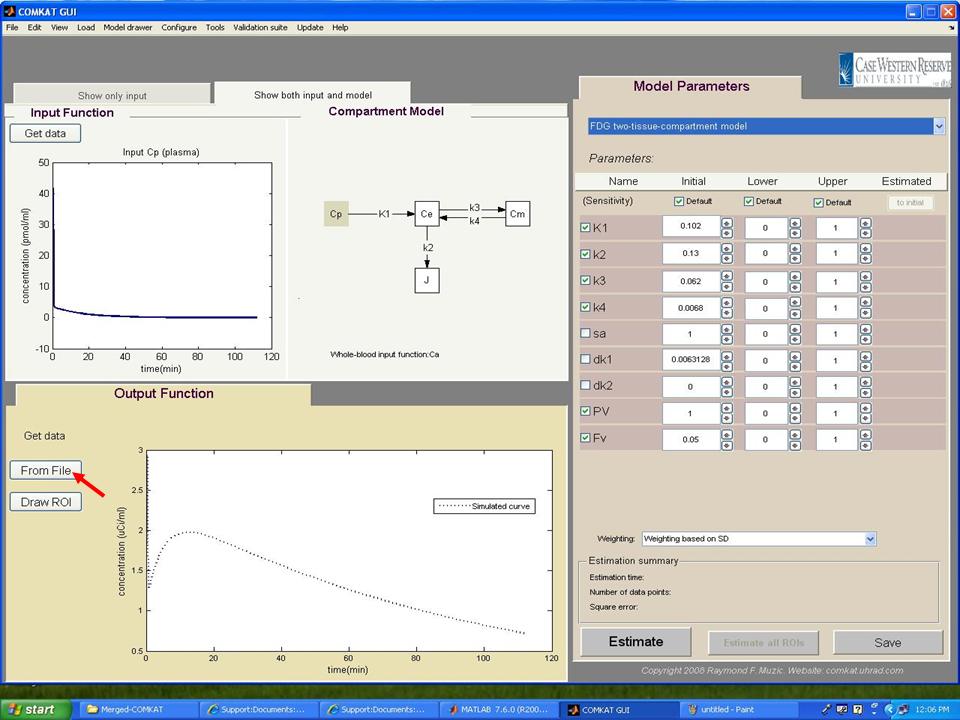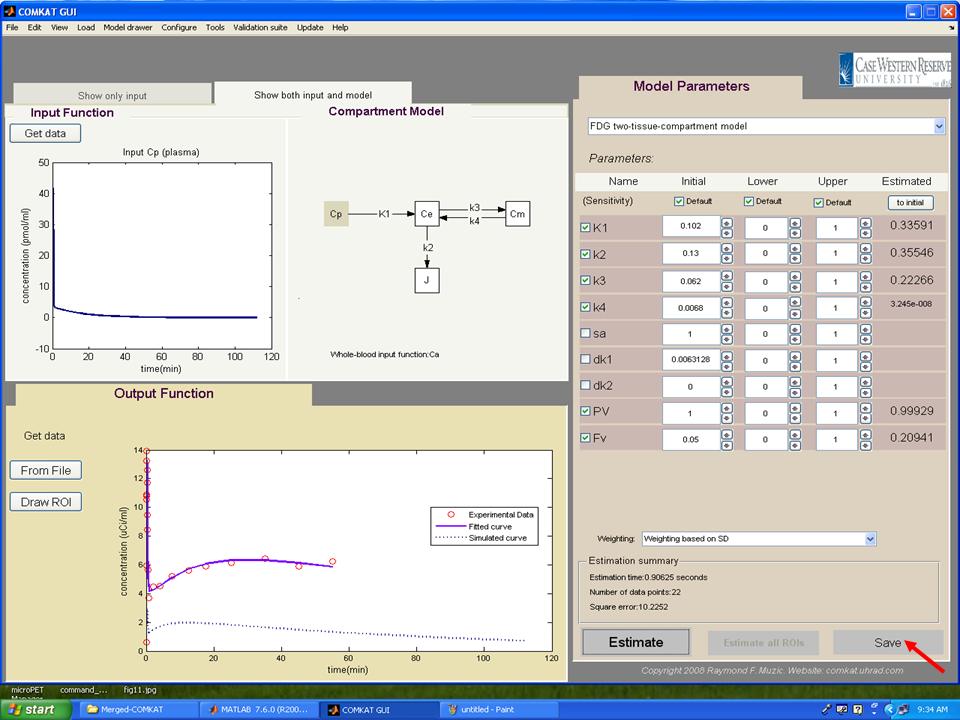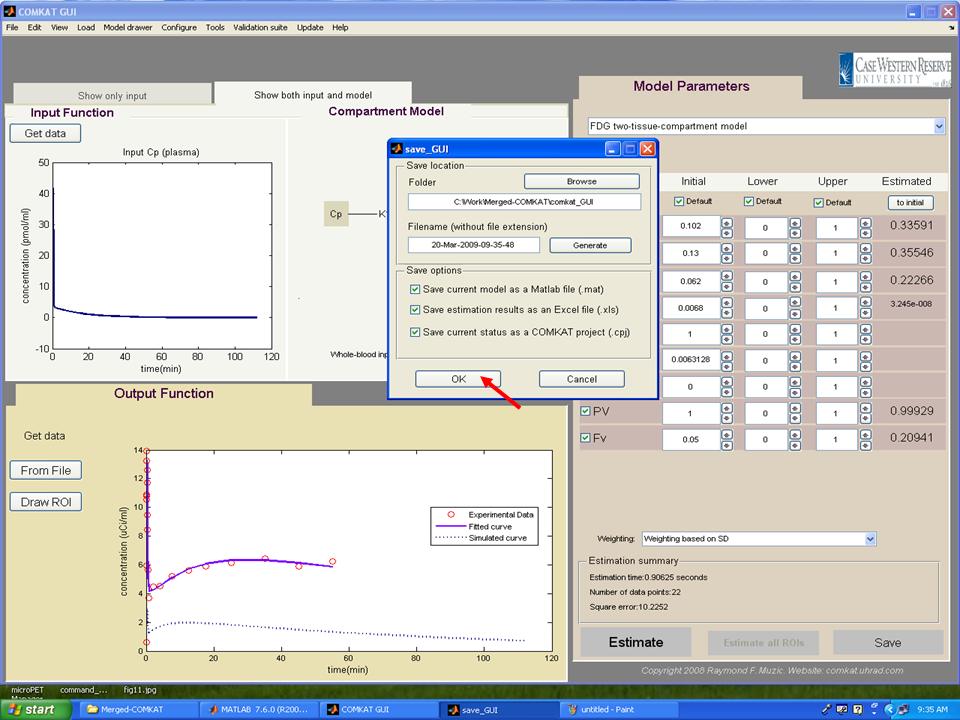Difference between revisions of "Support:Documents:Examples:Model Corrected Input Function"
| Line 3: | Line 3: | ||
===Overview=== | ===Overview=== | ||
| − | For 18F-FDG PET studies, the estimation of kinetic rate constants required knowledge of the input | + | For 18F-FDG PET studies, the estimation of kinetic rate constants required knowledge of the input function (i.e., 18F-FDG plasma time activity curve). The standard method to determine the input function is to measure 18F-FDG activity concentration in the arterial blood. However, this invasive procedure is limited by the small size of blood vessels and the limited blood volume. One alternative way is to estimate the input function non-invasively. One of non-invasive methods is image-derived input functions (IDIFs), which estimate input function from a region of interest (ROI) within the ventricular cavity. However, due to the limited spatial resolution and the cardiac and respiratory motion, cross-contamination from surrounding tissues to vascular structures affects the accuracy of estimated input function. To solve these problems, [http://www.ncbi.nlm.nih.gov/pubmed/18344438?ordinalpos=1&itool=EntrezSystem2.PEntrez.Pubmed.Pubmed_ResultsPanel.Pubmed_DefaultReportPanel.Pubmed_RVDocSum Fang] proposed a model-corrected input function (MCIF), which used simultaneous estimation to correct the spillover and partial volume effect for IDIFs. |
| + | |||
| + | |||
==Example of Estimating Input Function Using MCIF== | ==Example of Estimating Input Function Using MCIF== | ||
Revision as of 17:16, 20 March 2009
Model-Corrected Input Function
Overview
For 18F-FDG PET studies, the estimation of kinetic rate constants required knowledge of the input function (i.e., 18F-FDG plasma time activity curve). The standard method to determine the input function is to measure 18F-FDG activity concentration in the arterial blood. However, this invasive procedure is limited by the small size of blood vessels and the limited blood volume. One alternative way is to estimate the input function non-invasively. One of non-invasive methods is image-derived input functions (IDIFs), which estimate input function from a region of interest (ROI) within the ventricular cavity. However, due to the limited spatial resolution and the cardiac and respiratory motion, cross-contamination from surrounding tissues to vascular structures affects the accuracy of estimated input function. To solve these problems, Fang proposed a model-corrected input function (MCIF), which used simultaneous estimation to correct the spillover and partial volume effect for IDIFs.
